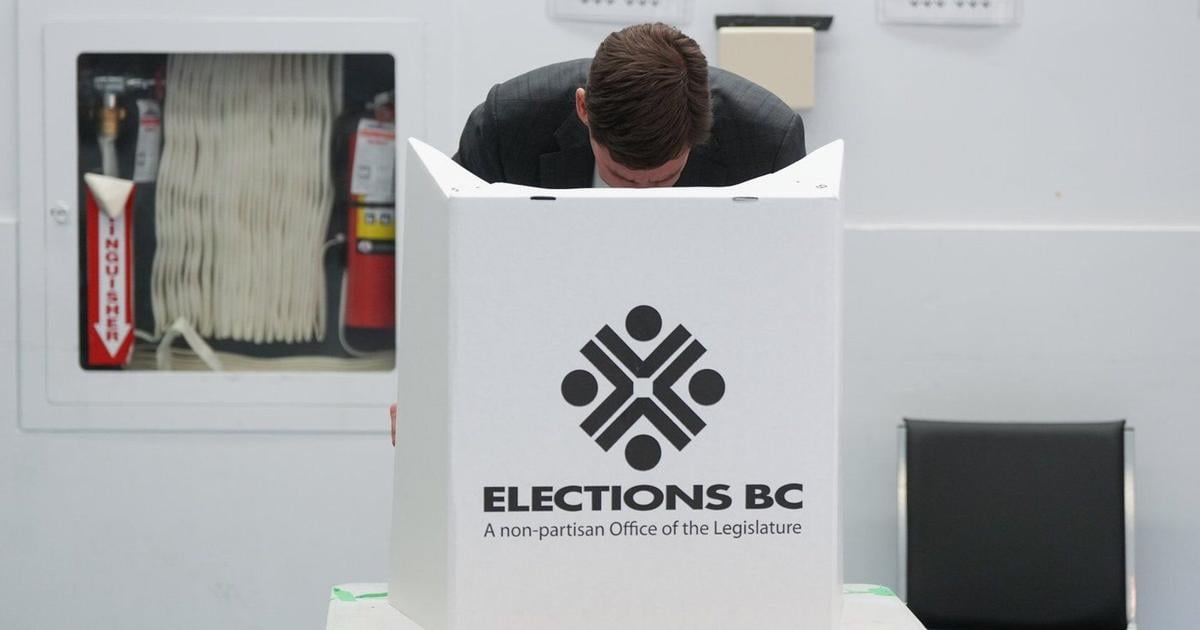VICTORIA – Elections BC says British Columbia should extend the campaign period for fixed-date elections and byelections by having “writ day” and the close of nominations occur on Wednesdays instead of Saturdays.
It’s among six “priority recommendations” in the election agency’s final report on the 2024 provincial election, released Thursday.
The report also includes a series of “public policy considerations,” including possible minimum age limits for political donors after Elections BC saw cases of “very young children” making contributions.
“This raises concerns about whether they are truly able to donate,” the report said. “It also raises the possibility that others — like family members — might be using these children’s names to get around contribution limits, breaking the rules.”
The agency says that setting writ day — the formal start of the campaign period — to occur on Saturdays is “administratively challenging” and creates a “very tight timeline” for nomination verification and ballot printing ahead of voting day, which also takes place on a Saturday.
The report says moving writ day and the close of nominations to a Wednesday would extend the campaign period by three days.
The other recommendations include establishing monetary penalties for campaigning within 100 metres of a ballot location and toughening powers against advertisers who violate misinformation and disinformation provisions of the Elections Act.
The Chief Electoral Officer can currently order election advertisers to produce “information related to advertising contraventions such as failure to register, failure to identify an advertising sponsor or indirect advertising sponsorship.”
But that authority, the report says, doesn’t capture communications that violate misinformation and disinformation rules, making it challenging to identify “authors of misleading or false communications.”
“A more comprehensive production order framework would support timely investigations and improve accountability in political advertising,” the report says.
It also suggests establishing unique identifiers for people who make political contributions, authorizing access to “authoritative information” from the federal government about non-citizens and consolidating how candidate nominations are submitted.
Having access to citizenship and residency information would “provide opportunities to improve the accuracy and coverage of the provincial voters list,” the report says.
Among its policy considerations, the agency highlights the absence of age limits under B.C.‘s Election Act.
It says that in the event that a child’s name is used to mask a true donor, was there are penalties for “indirect contributions.” But it says investigating and confirming whether a child donor is too young to have the capacity to donate is “challenging and subjective.”
The report says Elections BC does not collect or report information about the age of donors.
The report says legislators should consider an age limit of either 18 in alignment with rules to vote and run for office, or 16 to align with B.C.‘s employment standards.
Elections BC’s report says policy makers should consider changes to the law around political parties that merge because the Election Act currently “does not provide any clear rules or procedures on how two or more parties may merge into a single registered political party.”
B.C. election laws also has “barriers” to parties merging, including a 10-year ban on reusing the name of one of a deregistered party, and a provision that doesn’t allow money to be transferred between parties.
The report says that in contrast, Alberta’s election law and the Canada Elections Ac “set out clear rules and procedures for political party mergers.”
This report by The Canadian Press was first published Oct. 30, 2025.



